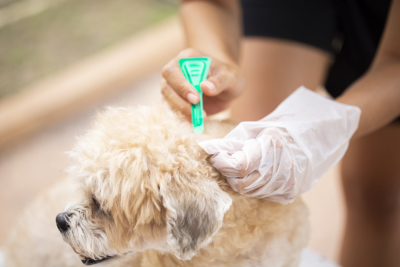
Is Your Pet at Risk for Diabetes?
Similar to humans, dogs and cats can get diabetes and there are also two different types. The form in which a pet has absolutely no insulin is called Type I Diabetes (the inability to produce insulin). The other form, Type II Diabetes, occurs when a pet’s body makes insulin, but either not enough, or there is a condition present that interferes with the function of the insulin (an insensitivity or resistance to insulin). While virtually 100% of dogs with diabetes mellitus have Type I Diabetes, this form of diabetes is actually considered rare in cats. Approximately 80% (or more) of cats have Type II Diabetes. Due to the differences in these types of diabetes, dogs and cats with diabetes are treated and managed differently.
As a pet owner, you will likely be the first to spot the symptoms of diabetes. The most common symptoms of dog and cat diabetes are:
- Increased Hunger or Appetite (called polyphagia)
- Excessive Thirst (called polydipsia)
- Increased Urination (called polyuria)
- Weight Loss
- Weakness or Fatigue
Initially the signs of diabetes are not terribly concerning to most pet owners as their pet is often just eating or drinking more than usual. However, it is important to notify your veterinarian if you detect any of these changes. As with most medical conditions, early detection and treatment of diabetes is recommended for the best possible outcome for your pet. Dogs and cats with diabetes can live happily and healthfully with the proper treatment and monitoring.
Uncontrolled diabetes can cause many devastating effects on your dog or cat’s body. When cells cannot access the glucose (sugar) in the blood stream the cells “starve”, and start to break down the body’s own fats and proteins to survive. The excess glucose builds up in the blood stream and starts to cause damage to vital organs, such as the kidneys, heart, eyes and more.
If you recognize any of the symptoms of diabetes in your pet, contact us at Good shepherd pet hospital right away to schedule an exam to test for diabetes and other potential causes. Together we will partner to find your pet the best diabetes management plan and help him or her continue to live a full, happy life!





